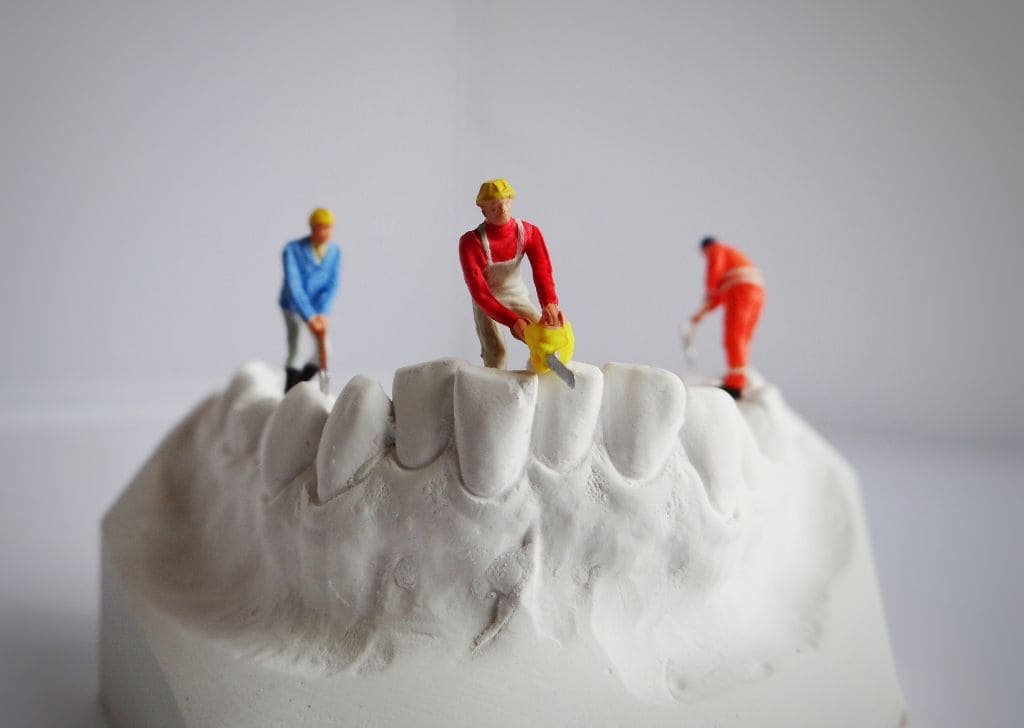Stress is a common part of modern life, but did you know it can directly affect your oral health? Teeth grinding, also known as bruxism, is often linked to stress and anxiety. At Cozy T Dental Seremban, we want to help you understand this connection, recognize the early signs, and learn effective ways to manage stress to protect your smile.
What is Teeth Grinding (Bruxism)?
Bruxism refers to the involuntary grinding or clenching of teeth, often during sleep but also during waking hours. While occasional teeth grinding might not cause significant harm, chronic bruxism can lead to severe dental and overall health issues.
Two Types of Bruxism
- Sleep Bruxism: Grinding that occurs during sleep, often linked to stress or sleep disorders.
- Awake Bruxism: Clenching of teeth during the day, usually a response to emotional triggers like stress, anger, or anxiety.
How Stress Contributes to Teeth Grinding

Stress is one of the leading causes of bruxism. When you’re under pressure, your body may respond by tensing muscles, including those in your jaw. Over time, this tension can lead to habitual teeth grinding or clenching, particularly when you’re asleep and unaware of your actions.
The Stress-Bruxism Cycle
- Stress triggers jaw tension: Emotional stress causes unconscious jaw clenching.
- Teeth grinding damages teeth: This leads to discomfort or pain, creating more stress.
- Pain exacerbates stress: Dental issues caused by grinding can further increase anxiety, perpetuating the cycle.
Early Signs of Bruxism
Detecting bruxism early can help prevent long-term damage to your teeth and jaw. Here are some signs to look out for:
- Jaw Pain or Soreness: Persistent pain in the jaw muscles.
- Worn Teeth: Flat or chipped teeth with visible enamel wear.
- Morning Headaches: Common in those who grind their teeth at night.
- Increased Tooth Sensitivity: Damaged enamel makes teeth sensitive to hot or cold foods.
- Ear Pain: Not an ear infection, but referred pain from jaw tension.
- Clicking or Popping Jaw: May indicate stress on the temporomandibular joint (TMJ).
If you’re experiencing any of these symptoms, consult the dental team at Cozy T Dental Seremban for a thorough evaluation.
The Impact of Teeth Grinding on Your Oral Health

Chronic teeth grinding can have serious consequences for your oral and overall health. These include:
- Tooth Damage: Cracks, chips, and enamel wear.
- TMJ Disorders: Pain and dysfunction in the jaw joint.
- Gum Recession: Grinding may contribute to receding gums.
- Sleep Disruption: Partner complaints about grinding noises at night.
- Facial Pain: Persistent muscle tension can lead to discomfort in the face and neck.
Tips to Manage Stress and Reduce Teeth Grinding

Managing stress is essential for preventing or reducing bruxism. Here are some practical tips:
1. Practice Relaxation Techniques
Incorporate activities like yoga, meditation, or deep breathing into your daily routine. These techniques can help calm your mind and reduce muscle tension.
2. Improve Your Sleep Hygiene
Since sleep bruxism is common, establishing a good sleep routine is vital. Ensure your bedroom is dark, quiet, and cool, and avoid stimulants like caffeine before bed.
3. Exercise Regularly
Physical activity is a proven stress reliever. A brisk walk, gym session, or even dancing can help reduce stress levels.
4. Seek Professional Support
If stress feels overwhelming, consider speaking to a counselor or therapist. Professional guidance can provide coping strategies tailored to your needs.
5. Use a Night Guard
For those with sleep bruxism, wearing a custom-fitted night guard can protect your teeth from grinding damage. Visit Cozy T Dental Seremban for a professional fitting.
6. Limit Alcohol and Caffeine
Both alcohol and caffeine can increase the likelihood of teeth grinding. Reducing their intake may alleviate symptoms.
When to Visit Cozy T Dental Seremban
While lifestyle changes can help, professional intervention is often necessary to manage bruxism effectively. At Cozy T Dental Seremban, we offer:
- Comprehensive Exams: To assess signs of teeth grinding and damage.
- Custom Night Guards: Protect your teeth while you sleep.
- TMJ Treatments: Address jaw pain and discomfort.
- Stress Management Guidance: Tailored advice to complement dental care.
Frequently Asked Questions About Stress and Teeth Grinding
Protect Your Smile – Take Action Today
Don’t let stress take a toll on your smile. At Cozy T Dental Seremban, we specialize in diagnosing and treating teeth grinding to safeguard your oral health. Schedule a consultation today to explore personalized solutions and tips for managing stress and bruxism.
Contact us at or visit our clinic to take the first step toward a healthier, stress-free smile.


